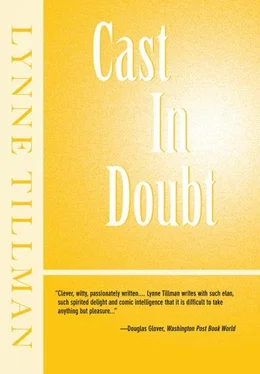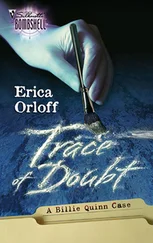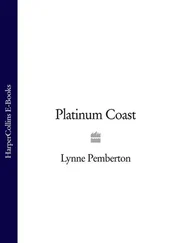They ought to hire Roger for the CIA, he’d be perfect, a perfect architect for intrigue. He was furious when we lost the war in Vietnam. We didn’t lose it, he bleated, we gave it away! I lorded it over him that our Kissingers ultimately had to bow low to tiny Vietnam. I could just imagine all those beefy military men in their uniforms, with stars on their chests, stunned and helpless, like octopuses lying on the harbor, gasping their last breaths. So many discussions with Roger about the parallels with Great Britain, when it lost its empire, and how he foresaw the end of Western civilization! I answered, if the U.S. is the last outpost of the West, then good riddance to it. I don’t entirely mean that. After all, I am of the West. But what will come next? Sometimes I am glad to be old.
I believe I am patriotic in my fashion. I certainly wouldn’t dupe my government and the people the way Nixon did. Power to the People indeed. Perhaps now our masculine American men will develop the self-deprecating humor Englishmen display so effortlessly. It charmed me when Duncan used to say he was so hopeless he couldn’t organize lunch. One couldn’t imagine an American man professing to hopelessness, to helplessness. I miss Duncan. I may even seek out the hermit Stephen; he’s somewhere not that far from here, I heard, in the mountains. Perhaps he is in Mátala, living the life of a hippie. I believe the hippies are still there, in those caves. I couldn’t live in a cave. Why on earth would one want to?
Alone, unencumbered by Yannis’ incredulous or contemptuous gaze, I raise my hand and clench it into a fist, making a Black Power salute, which I would never do in public. It’s odd, these kinds of desires. And the things one does alone in a room that one would never do in company. My arthritis doesn’t allow me to close my hand fully, the index finger won’t flatten, the pinky pokes up, and my hand flops open again. I lie down on the bed, my bones creaking. I’ve had creaking bones all my life. I never had a middle age, I went from twenty to sixty. In a sense, I’m used to being old. I like to imagine I take it in stride, that it is my stride, in fact.
I had my moments — raving with Gwen around New York and Cambridge years ago — and still do from time to time. But deep inside me lives a prim, elderly man, and sometimes a woman, like my mother or one of my aunts, or a combination of both, who constantly shakes this head of mine from side to side, as if to say, Oh, no, not that, and oh no, you can’t do that, and none of the family ever did, and so on.
At the time they were popular I couldn’t have imagined a minidress on Nectaria; it was unthinkable. Helen is surely an offshoot of the sexual revolution. I think she may even be a punk. Her free-wheeling attitudes and containers of birth-control pills, these are indeed the accoutrements of a time Alicia wasn’t part of. Another reason, or the reason, why Alicia takes such exception to Helen; she sees Helen as wild, a libertine, which is strange because I’m sure Alicia is seen or was seen in that way by her parents’ generation. I know my parents saw me that way. Libertine or not, Helen isn’t happy.
She has taken up painting. Doing watercolors, I think. She bought some colors the other day when she went to Iráklion. I don’t know how she got there. It may even have been Roger who drove her. He desperately wants Helen’s approval or at least my disapproval. While he continues to gossip behind her back, he’s courting her, perhaps fascinated as I am, but I doubt it. I am sure Helen and I are soulmates, which I’d never tell her. Roger must think she’s got deep pockets or her daddy does and if he plumbs the well well enough, there’ll be something for him.
Helen’s head is bent low, at an angle of extreme concentration. Now she scratches her leg. Now she places her hand on her breast and absentmindedly fondles herself, loving herself. She looks up, as if she’s heard something, and leaves the terrace. The curtains are drawn. Is she entertaining one of the sailors? No wonder she is unhappy. The boys are inconsiderate lovers; they leave women unsatisfied and fall asleep after intercourse or jump from the bed, pulling at their flies to close them quickly and flee. She’s not even afraid of disease. She’s grown up with antibiotics. Syphilis means nothing to her. I told her syphilis was first mentioned in a poem in 1530, by Fracastoro. She asked if I chose to remember that or did I remember it without thinking. I talked with her then about the life of the mind and continuity — how ideas and knowledge pass from generation to generation, about the work of intellectuals, who are the keepers of the flame, and that the flame is ideas and art. She asked if I really believed this.
I’m unable to decipher what she believes. Are these quick spurts of sex or love what she wants? I ventured one time to comment upon her casual attitude toward men and she stared at me for a moment, about to say something rather severe, I thought, but then she said that she didn’t think of herself as I did and sleeping with different guys was fun sometimes, especially when she was bored and especially since she didn’t want to get involved. I suppose this is just now a very American attitude, a young American woman’s attitude. But she is so young. I am certain she will feel different later, although she doesn’t seem to be full of illusions as I was when I was her age. Helen’s young as the country she was born in, and yet she’s old too, without those ideals and illusions. What a strange girl. Maybe one has no middle period, no middle age, just a beginning and an end. Countries age fast these days. So did I, I aged fast. Yet I made youthful errors. Peccati . When the sins lift from one’s shoulders, Dante wrote, one feels lighter, capable of being borne up to Heaven. I don’t expect to go to Heaven. Heaven defies logic, and I am logical. A.J. Ayer, I heard, is so great a logician that when Somerset Maugham lay dying, Maugham called the philosopher to his bedside to have him reassure him that life would definitely end at death, that there was no afterlife. There’s no sign of life behind Helen’s curtains. And I cannot observe her.
I move away from the window and pick up a Greek newspaper. The failed coup against Makarios in Cyprus continues to backfire and reverberate; its dramatic and devastating effects play havoc with political life here, much like our Watergate, except graver. The coup must have been engineered by the CIA. This I have argued with Roger. It is rumored that the junta intended to invade Turkey, too. Madness, madness.
I read the newspaper every day. Reading the newspaper is addictive. But do I do more than observe and keep up, in an endless race with time. I am acquainted with the events of the day and try to stay involved, engaged, and attentive to the world. I rue injustice. But sometimes I fear that I merely repeat others’ analyses, that their involvement and knowledge provide me with a semblance of comprehension, about which I am too often uncritical. This is part of my insecurity. Gwen wrote once that I was, in a way, too accepting, that that was a facet of my appeal. It is funny — appeal. Alicia appeals to me, as do Duncan, Yannis, and Gwen, of course — and Helen. She touches me. Of course she is masculine in her independence, androgynous, I suppose, yet quite female. In a disquieting and subtle way, there is something dangerous about her, something in her that I fear and something that I fear for her. I’ve never thought that before.
My detective Stan Green is not afraid of anything except snakes, which is why he refuses to work in Texas, where the three poisonous snakes of the United States meet, another demonstration of nature’s nefarious design. Green revels in the bar-room brawl. He’s quick with his hands and dances on his feet, like Joe Louis, though he’s not brazen like Muhammad Ali. I still want to call him Cassius Clay. Cassius is a fine Civil War name. But it is also a slave name, and I can see why a black man would want to be rid of it. Certainly the answer to the question, what’s in a name, would fill a book, and does.
Читать дальше












